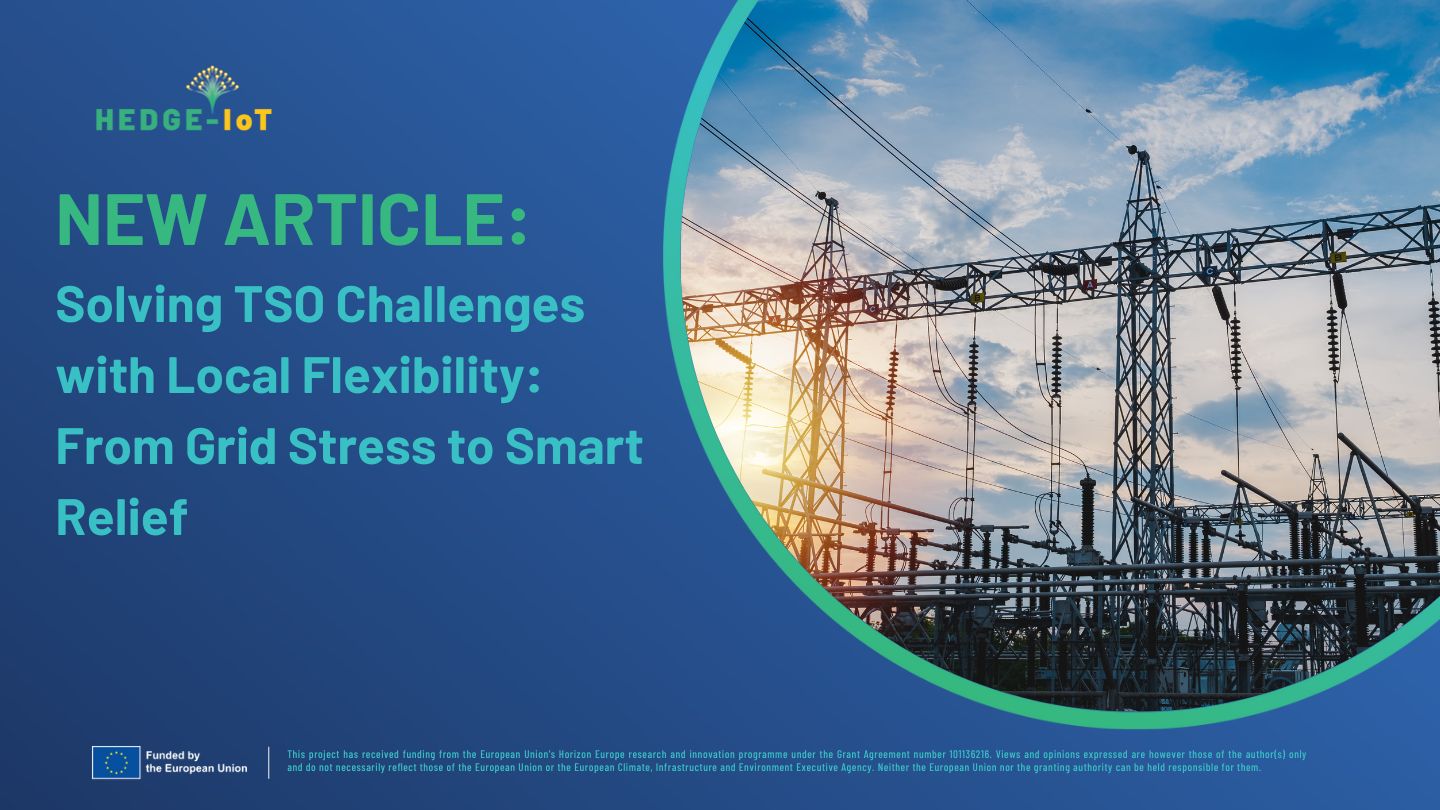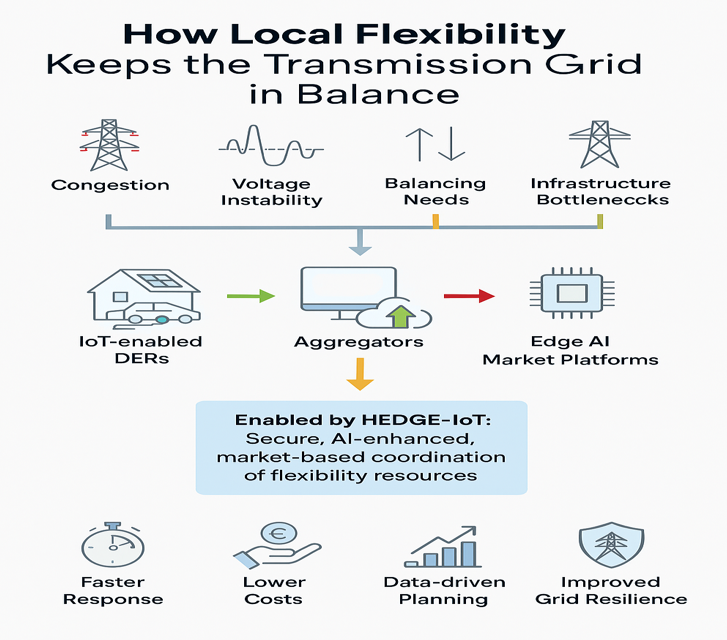
As the energy transition evolves, Europe’s power systems are becoming more decentralized, dynamic, and data-driven. For Transmission System Operators (TSOs), this shift poses critical challenges; managing volatility, ensuring security, and maintaining efficiency in a system that no longer behaves top-down. At the same time, the rise of Local Flexibility Markets (LFMs) and IoT-enabled assets opens new opportunities. As such flexible demand, distributed storage, and smart coordination can support the grid from the edge. In that context, HEDGE-IoT project positions IPTO, Greece’s TSO, at the heart of this evolution by testing how local flexibility, powered by edge computing and AI, can solve real operational problems.

Local flexibility can address several challenges that TSOs face in the current energy landscape. One of the foremost problems is transmission congestion, especially in areas with high renewable generation and limited network capacity. Traditionally, TSOs have handled congestion by reinforcing the grid or re-dispatching large generators. Nevertheless such countermeasures are both costly and time-consuming solutions. Through LFMs, however, congestion can be alleviated more dynamically by calling on flexible assets such as batteries, EVs, or controllable loads located precisely where the constraints occur.
Another issue for TSOs is voltage instability, particularly at the transmission-distribution interface in regions with high DER penetration. Smart local assets can support voltage management by adjusting reactive power or shifting consumption patterns, thus stabilizing conditions before they escalate into larger system-wide problems. Similarly, flexibility plays a vital role in frequency regulation. As traditional synchronous generation is displaced by renewables, balancing actions become more challenging. LFMs allow TSOs to access new sources of balancing services, enabling faster and more diversified responses, often through aggregated DERs that were previously invisible to the transmission layer.
Post-fault remediation is yet another area where local flexibility can offer significant value. During grid disturbances, TSOs must act quickly to prevent cascading failures. If flexible resources can respond automatically to signals detected by TSO or DSO monitoring systems—such as shedding load, injecting power, or adjusting voltage—they can support system stability in real time. Finally, one of the most strategic benefits is the ability to defer or even avoid expensive grid reinforcements. By utilizing flexibility to manage peak loads and stress points, TSOs can reduce capital investment needs and optimize existing infrastructure.
In that context HEDGE-IoT brings these ideas to life in a practical pilot. In particular at the Greek demo site, 100 residential and commercial buildings provide real-time flexibility under market-based scenarios. IPTO generates flexibility requests based on simulated or real congestion issues, while the aggregator responds with optimized asset behavior.
A cloud-based LFM platform, facilitates the market transactions, matching IPTO’s needs with available flexible capacity. For IPTO, this pilot serves as a testbed to evaluate how flexibility can be integrated into core system operations in a way that is scalable, secure, and economically viable.
TSOs are no longer just operators of long-distance wires—they are orchestrators of complex, decentralized systems. Local flexibility, once viewed as a DSO-only concern, now plays a critical role in addressing congestion, balancing, stability, and investment challenges at the transmission level. The HEDGE-IoT project gives IPTO a great opportunity—and active role—to test how next-generation IoT, AI, and market design can bring this flexibility to life.
REFERENCES:
- GOPACS: https://gopacs.eu/en/
- NODES Market: https://nodesmarket.com/
- HEDGE-IoT Project: https://hedgeiot.eu/
- smartEn: https://www.smarten.eu/
- European Commission, Electricity Market Reform: https://energy.ec.europa.eu
- ENTSO-E, TSO-DSO Coordination Report (2023)
AUTHORS:
Nikos Andriopoulos (Independent Power Transmission Operator (IPTO))
Dimitrios Ioannis Bakratsis (Independent Power Transmission Operator (IPTO))
Fotis Konstantinos Paterakis (Independent Power Transmission Operator (IPTO))
Ioannis Moraitis (Independent Power Transmission Operator (IPTO))